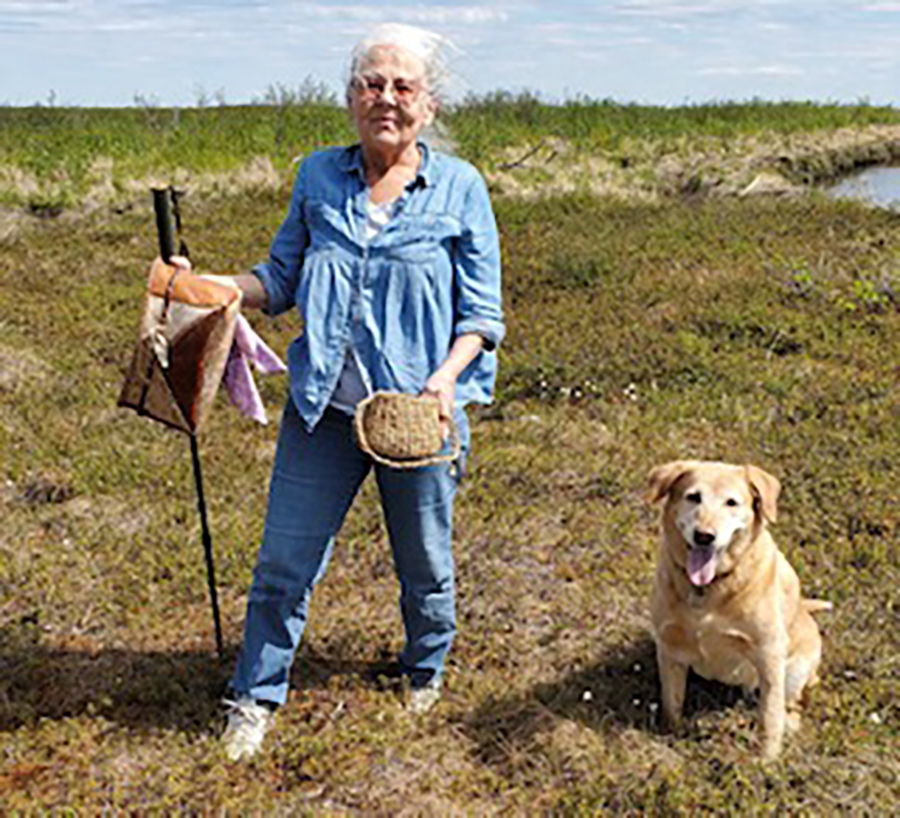Writing Fellow
n September, First Alaskans Institute hosted an online event, Protecting Our Ways of Life Virtual Tribunal: Truth, Racial Healing and Transformation. The event was designed to allow Alaska Native people to speak about their experiences concerning State and Federal hunting and fishing management systems that have negatively impacted them and their communities.
The testimonials stemmed from a need to recognize and address ongoing challenges to the social, economic, and political marginalization of Alaska Native people and communities. During the event, participants emphasized specific and tangible examples of many issues that have negatively impacted them and their communities.
Personal accounts mentioned conflicts between many Alaska Native communities, state entities, and federal hunting and fishing management systems. In Alaska Native communities, there are hunting, harvesting, and gathering lifeways competing with political, social, and economic expectations from across the nation.
When tasked with explaining these conflicts, it is straightforward to point out a pattern of systemic racism and marginalization. There are many indicators to reference, including health, economic, social, and political disparities.
In many circles, issues concerning systemic racism are dismissed as hyperbole. It is challenging to discuss racism for many reasons. Fortunately, the FAI event was structured to allow for the time and space to share personal accounts of specific experiences that span numerous issues.
“When you put it all together, it is terrible,” Gloria said. “But I still have some measure of hope.”
There is no doubt that there is systemic racism or inequity between federal and state agencies and Alaska Native and American Indian communities. There is a need to continue adding to these discussions, and First Alaskans Institute provides these opportunities with online events such as the recent online tribunal.
The relationship between federal and state agencies with sovereign Native nations is complicated.
In March the White House shared a fact sheet on “U.S. Efforts to Combat Systemic Racism.” The subject concerned combating systemic racism and the need to address structures, policies, and practices that contribute to the wealth gap, health disparities, and inequalities in educational access and other outcomes.

Native people have stewarded ancestral lands and waters since time immemorial, and we will continue to do so. Yet, in the last 250 years, there has been a marked degradation of Native people, homelands, and our ways of life. Native people and communities must have a space to speak about the harms in the past and perhaps just as important speak about Native truths today.
There is intergenerational healing that is occurring. A few of the speakers at the tribunal mentioned that the younger generation is smarter; emerging generations are better prepared to advocate for Native people. Our voices will not be so easily dismissed. As Alaska Native and American Indian people have more social and political opportunities, there will be greater equity.
Advocating for Alaska Native ways of life and self-determination will be a challenge. With 229 recognized Alaska Native villages, there are many voices. Contending with the history of colonization and marginalization, there is a need to educate government institutions on Indigenous sovereignty.
“They just want part of us at the table,” Gloria said. “They don’t want all of us. We have survived, and now … they can see exactly what has been done to us at their hands.”
First Alaskans Institute, by hosting a series of events, continues the dialogue on racial equity. As Native people come together to discuss these many issues concerning equity, there is still an ongoing need to educate.
“We are more than the sum total of all of our parts,” Gloria said. “We can achieve miracles. We can make miracles happen when we’re building each other up, pulling each other up. By supporting each other, we can make sure that the children have hope.”
- There are competing economics of hunting, harvesting, and gathering lifeways that conflict with Western wage-earning economics. This is especially true in rural villages where employment opportunities are very limited.
- The Western perspective does not readily identify the importance of the connection Alaska Native people have with ancestral lands and the sea.
- The Western perspective of individual interests is often in conflict with common values of Alaska Native people sharing foods with Elders and the community or the significance of eating our Native foods.
- Global warming is having a current and identifiable impact on hunting, harvesting, and gathering lifeways.
- Federal and State institutions are impacting hunting, harvesting, and gathering lifeways. The laws are unfairly applied with greater interest given to revenue obtainment for the State—e.g., big game tags, bycatch waste of commercial fishing, fossil fuel, and resource extraction versus protecting waterways.
- Discussing truth, racial healing, and transformation from those who experienced harm and Federal and State institutions that need to be educated on the challenges faced to move toward greater equity.